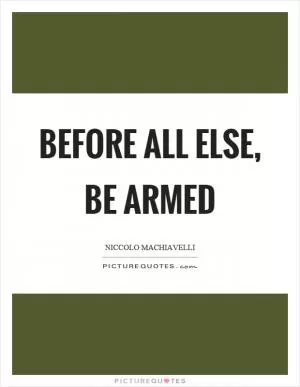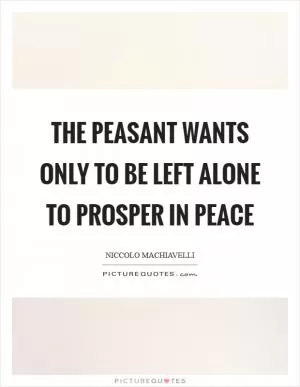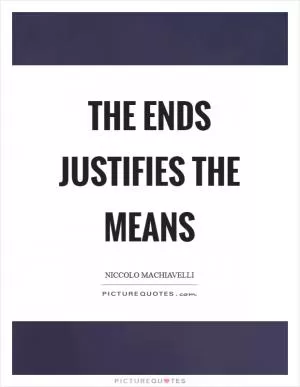And those modes of defence are alone good, certain and lasting, which depend upon yourself and your own worth

And those modes of defence are alone good, certain and lasting, which depend upon yourself and your own worth
Niccolò Machiavelli, the renowned Italian diplomat, philosopher, and writer, is often remembered for his controversial views on power and politics. In his seminal work, "The Prince," Machiavelli explores the nature of leadership and the strategies that rulers must employ to maintain their authority. One of the key principles that Machiavelli emphasizes is the importance of self-reliance and personal worth in defending oneself against external threats.Machiavelli argues that relying on others for protection is inherently risky and unreliable. He believes that true strength and security come from within, from one's own abilities and virtues. In the context of defense, Machiavelli asserts that the most effective and enduring modes of protection are those that depend on the individual's own skills, intelligence, and character.
According to Machiavelli, external defenses such as fortresses, armies, and alliances are ultimately vulnerable to betrayal, incompetence, or changing circumstances. In contrast, internal defenses based on personal qualities such as courage, cunning, and decisiveness are more reliable and resilient. Machiavelli advises rulers to cultivate these qualities in themselves and to rely on their own judgment and abilities in times of crisis.
Machiavelli's emphasis on self-reliance and personal worth reflects his belief in the importance of individual agency and autonomy. He rejects the idea of passively depending on others for protection or guidance, advocating instead for a proactive and assertive approach to defense. By taking control of their own destinies and relying on their own strengths, individuals can better navigate the complexities of power and politics.












 Friendship Quotes
Friendship Quotes Love Quotes
Love Quotes Life Quotes
Life Quotes Funny Quotes
Funny Quotes Motivational Quotes
Motivational Quotes Inspirational Quotes
Inspirational Quotes